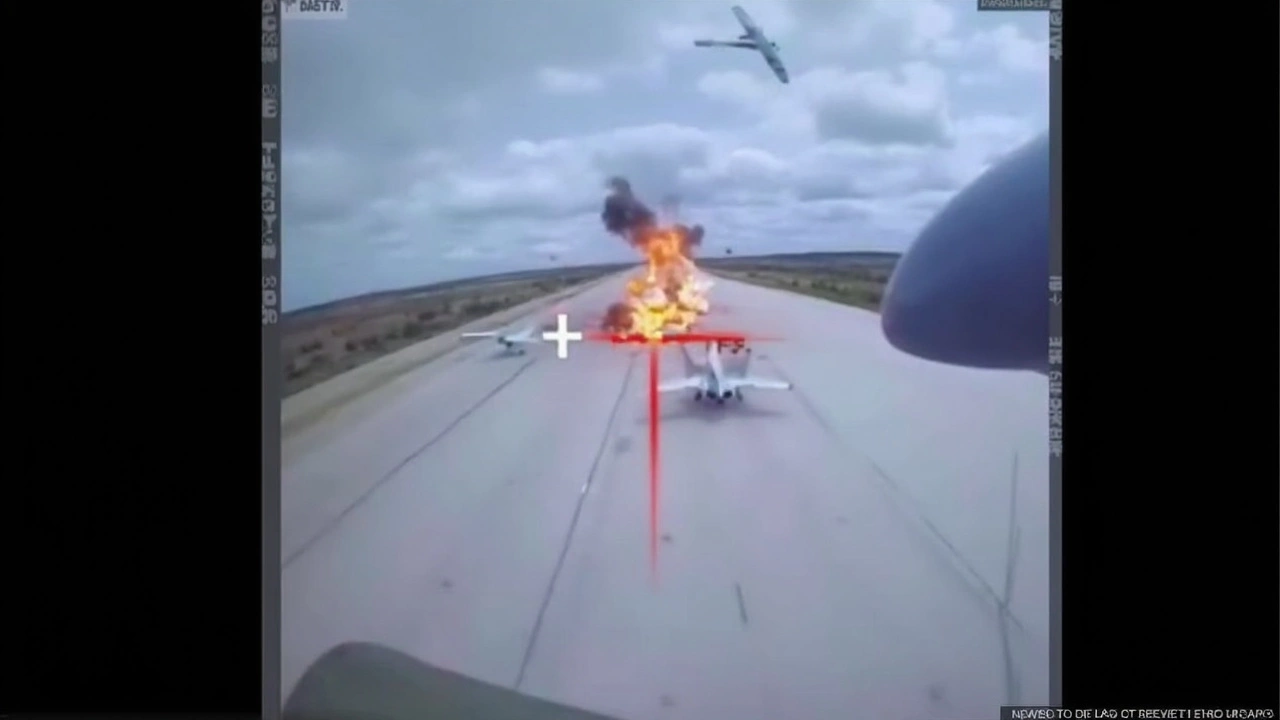
Ukraine's 'Spider's Web' Hits Russian Airbases Hard
War in Ukraine hit a dramatic new phase when more than 100 drones, stashed in makeshift wooden cabins and moved by truck across hostile terrain, hammered Russian military airbases on June 1, 2025. Ukrainian forces named the bold move 'Spider's Web'. The operation struck deep into Russian territory, hitting bases near Murmansk, Irkutsk, and even the Moscow region.
The stats are staggering. Ukrainian security services claim about 40 Russian warplanes—including long-range strategic bombers—were blown up in the attack. That's roughly $7 billion in high-tech hardware destroyed in one swoop. Getting those drones into position was no small feat: planners spent 18 months designing the operation, hiding the drones inside mobile cabins, then deploying them at key points close to the targeted airfields. Once everything was ready, the drones were sent off remotely, swarming Russian bases from unexpected directions.
Russian officials didn’t deny the attacks happened, but they called the strikes acts of terrorism and refused to give details about equipment losses or casualties. State media went further, suggesting the strikes posed risks to nuclear security, since some of the damaged bombers can carry nuclear payloads. Ukrainian President Volodymyr Zelensky, meanwhile, called it a "brilliant military operation against legitimate targets," brushing off Russia's outrage and focusing on shifting the momentum in Ukraine’s favor.
This wasn’t just a Ukrainian show of force. Hours after 'Spider’s Web', Russia responded with its largest-ever missile and drone barrage: over 400 airborne weapons hurled across Ukraine. The skies lit up while air raid sirens wailed from Kyiv to Kharkiv. Not long after, railway bridges in western Russia mysteriously collapsed—Ukrainian agents were widely suspected, though Kyiv wouldn't confirm those details.
Military Shakeups and Diplomatic Deadlock
The timing was wild. Just as Ukraine celebrated the drone operation, Ukrainian Ground Forces Commander Mykhailo Drapatyi reportedly resigned. Russian missiles had struck a training range under his watch, adding a twist to an already tense period. On top of all this, peace talks between Ukrainian and Russian delegations are set to restart in Istanbul, but insiders say neither side is budging. Ukraine’s focus is on reclaiming lost ground, while the Kremlin is pushing its own narrative on security and territorial control.
It’s clear this 'Spider’s Web' attack gave Ukrainian forces a critical win, shaking Russian air operations when the war seemed stuck. The method—smuggling, hiding, then launching drones from right under the enemy’s nose—could inspire more unconventional tactics in future conflicts. Both Moscow and Kyiv are ramping up their drone and sabotage games, making the frontline and behind-the-lines just as unpredictable. With peace still just a rumor, these new attacks have made it obvious: neither side plans to back down anytime soon.




